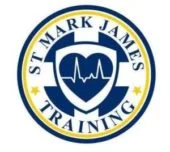Cardiac Health in Canada
In Canada, the statistics on cardiac health have been increasing in the pass five years. Risk factors such as hypertension (high blood pressure) and sedentary lifestyle are prevalent in Canadian population, increasing the risk for developing cardiac diseases, specifically Coronary Artery Disease or CAD. As the risk for CAD increases, so does the risk for heart attacks – the medical term of which is cardiac arrest. Learn more about the Advanced Cardiac Life Support in Regina.
Current statistics in health as of 2013 are:
- Hypertension – 12 years and over, 17.7 percent
- BMI higher than 21 – 18 years and over, 53.6 percent
- Low physical activity – 12 years and over, 55.2 percent
High blood pressure, obesity/being overweight, and a sedentary lifestyle all predispose a person to developing fatty deposits in the their blood vessels, especially in small vessels that supply the heart with blood (the coronary arteries). The build up of fat and inflammatory cells decreases the delivery of needed blood and oxygen to the heart tissue, causing major dysfunction and eventual cardiac arrest.
Advanced Cardiac Life Support in Regina First Aid
Regina First Aid’s ACLS program remains one of the best advanced CPR training programs in Canada today. Our provider boasts high quality and affordability, with programs scheduled through the entire week – including weekends. The ACLS program offered by our provider is 12 hours long over two days- certification exam day not included (the exams are scheduled separately).
ACLS refreshers are likewise offered to students who have previously taken ACLS training whose certificates are expired or nearing expiry. The refresher program for ACLS is shorter, taking only 5 to 6 hours.
ACLS training certificates are only valid for three years, renewable through recertification classes in Regina. Our credentials are accepted all over Regina and Canada.
The Advanced Cardiac Life Support Curriculum
The ACLS curriculum focuses on the concept of advanced medical management, specifically for adult patients who experience cardiac emergencies. Managing cardiac emergencies in the hospital is very different from management by EMTs or first responders when victims collapse in public. Equipment such as bag valve masks, ventilators, manual defibrillators, and cardiac and pulmonary medications are all accessible and part of the management of the resuscitation team.
Defibrillation and Arrythmias
One of the biggest and most common misconcepts in cardiopulmonary resuscitation is the use of defibrillation when a victim is “flat-lined” or in asystole. You often see this movies and TV shows, where a patient is “shocked” and magically normal heart rhythm returns. This is incorrect. Defibrillation is used to correct an arrhythmia – such as ventricular tachycardia, not create a rhythym in the absence of one. When electricity is sent to the heart, it “shocks” the heart into correcting its rhythm.
Common arrythmias that adults experience are:
- Atrial fibrillation
- Atrial flutter
- Atrial tachycardia
- Bradycardia
- Long QT Syndrome
- Paroxysmal supraventricular tachycardia
- Supraventricular tachycardia
- Ventricular fibrillation
- Ventricular tachycardiac
Defibrillation is used to correct these or the use of certain cardiac medications. E.g. an arrhythmia called Torsade de Pointes is corrected by administered Magnesium Sulfate.
You can contact us via e-mail or a telephone call; however, remember to call and visit us during business hours, from 8 AM to 5 PM. We highly encourage everyone to drop by; you may even get a free tour of our facility!
Refunds and Transfers:
Refunds are not accepted within 72 hours of the primary course. Transfers within 72 hours are charged 25 dollars. Candidates that request a refund or transfer prior to 72 hours of the primary course registered will receive a full refund. There are no refunds for rescheduled events.
Students are strongly advised to check with their employer prior to enrollment to ensure the certification meets their requirements.
